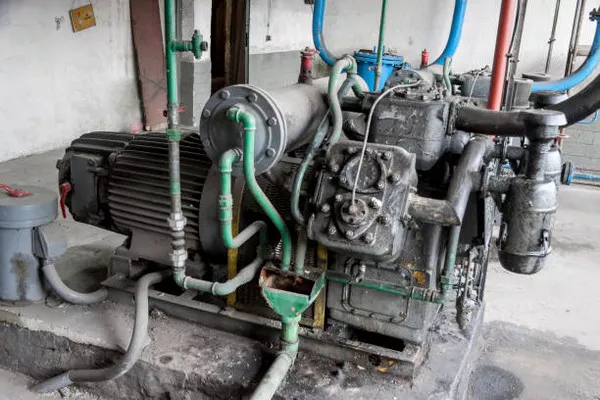Power outages are inevitable, and having a backup power source is crucial for both residential and commercial establishments. Many opt for generators fueled by either propane (LP) or natural gas to provide electricity during blackouts. However, some might wonder whether a generator designed for one fuel type can run on the other. In this article, we delve into the feasibility and considerations of running a propane generator on natural gas.
Understanding Propane and Natural Gas
Propane (LP)
Propane, also known as liquefied petroleum gas (LPG), is a hydrocarbon gas commonly used as a fuel for heating, cooking, and powering appliances such as generators. It is stored in pressurized tanks in liquid form and vaporizes when released into the atmosphere. Propane is readily available and widely used in areas where natural gas infrastructure is lacking.
Natural Gas
Natural gas is a fossil fuel composed primarily of methane, along with small amounts of other hydrocarbons. It is extracted from underground reservoirs and distributed through pipelines to residential, commercial, and industrial consumers. Natural gas is a popular choice for heating homes and powering appliances due to its abundance and relatively low cost.
Compatibility of LP Generators with Natural Gas
Engine Design
LP generators are typically designed with specific components optimized for propane combustion. These components include the carburetor or fuel injector, fuel lines, and regulator. Propane has different combustion characteristics compared to natural gas, requiring adjustments in the engine’s air-fuel mixture to ensure efficient operation.
Fuel Pressure
One of the primary differences between propane and natural gas is their storage and delivery methods. Propane is stored under pressure in tanks, whereas natural gas is delivered through pipelines at a lower pressure. LP generators are engineered to operate within a certain pressure range suitable for propane. Converting a propane generator to run on natural gas would require modifications to accommodate the lower pressure of natural gas.
Energy Content
Another crucial factor to consider is the energy content of the fuel. Propane contains more energy per unit volume compared to natural gas. Therefore, a generator designed for propane may not be able to produce the same power output when fueled with natural gas unless adjustments are made to compensate for the lower energy density of natural gas.
Converting an LP Generator to Run on Natural Gas
Conversion Kits
Conversion kits are available in the market for certain models of LP generators, allowing them to be converted to run on natural gas. These kits typically include components such as a new carburetor or fuel injector, regulator, and necessary hardware for installation. However, it’s essential to ensure that the conversion kit is compatible with your generator model and that the installation is performed by a qualified technician.
Professional Installation
Converting an LP generator to run on natural gas is not a DIY project and should be carried out by experienced professionals. A qualified technician will assess the generator’s compatibility with natural gas, install the necessary components, and adjust the engine settings to ensure optimal performance. Improper installation can lead to engine damage, safety hazards, and voiding of warranty.
Considerations for Running an LP Generator on Natural Gas
Performance
While it is possible to convert an LP generator to run on natural gas, the performance may not be the same as when using propane. As mentioned earlier, natural gas has a lower energy density, which can result in reduced power output and efficiency. It’s essential to assess whether the generator’s performance meets your requirements when fueled with natural gas.
Regulatory Compliance
Before converting an LP generator to run on natural gas, it’s crucial to check local regulations and codes governing the use of natural gas appliances. Compliance with safety standards and regulations ensures the safe operation of the generator and prevents potential legal issues. Additionally, obtaining permits may be necessary for the installation of natural gas equipment.
Maintenance
Operating a generator on natural gas requires regular maintenance to ensure continued reliability and performance. This includes periodic inspection of fuel lines, regulators, and engine components, as well as cleaning and adjusting as needed. It’s essential to follow the manufacturer’s maintenance guidelines and schedule to prolong the lifespan of the generator.
Fuel Supply
Unlike propane, which is stored in tanks on-site, natural gas relies on a continuous supply through pipelines. Interruptions in natural gas supply, such as during emergencies or maintenance, can render the generator inoperable. It’s advisable to have contingency plans in place, such as backup fuel sources or alternative power solutions, to mitigate the impact of fuel supply disruptions.
Conclusion
In conclusion, while it is technically possible to convert an LP generator to run on natural gas, several factors must be considered to ensure successful and safe operation. Compatibility of engine components, fuel pressure requirements, and energy content differences between propane and natural gas necessitate careful evaluation and professional installation. Additionally, performance, regulatory compliance, maintenance, and fuel supply considerations are essential for the reliable operation of a natural gas-powered generator. Before undertaking a conversion, it’s advisable to consult with a qualified technician to assess feasibility and ensure compliance with local regulations. Ultimately, whether an LP generator can run on natural gas depends on various factors, and careful consideration should be given to each before proceeding with a conversion.


